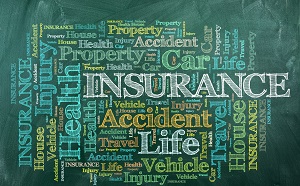Insurances are meant for worst-cases!
Disasters happen on a daily-basis and when they do, most exceed the financial means of private persons or companies, thus without insurance solutions both will need to lead to procure funds or file bankruptcy.
Even though people often believe "it will never happen to me", the chances it will are higher than we all like to admit, leaving just one question- when! With this in mind, people do wish to purchase securities and this is the reason why insurance products are sold. These kinds of motives however always steers the customer into a contradiction, in how we value insurance and what it must do for me:
"Shall I purchase a product for the lowest price or,
the best possible product, yet have to then pay a premium price"
Insurances & Profits
And these principles are what insurance companies use to gain profits, also knowing that the vast majority of their future customers will, for sure, not read the policy wording ... these words that actually describe what, or rather, what not, we are buying.
Insurance products might not be visible, but they are existant!
Instead, people seek advice from institutes like us or sole-representatives of an insurer (remember the beginning of this article ... an insurance works in its own interest ... the same goes for the salesman). If people are comfortable, they place their trust in the salesman, basically asking him to decide on product on their behalf. This takes their responsibility away should the policy turnout to be the wrong decision.
At this stage, if we (the advisors) fail to make clear the risks of investing cheaply, one of the economic principals will sooner or later show their negative side. True to John Ruskin's wisdom:
"It is unwise to pay too much, but it is worse to pay too little."
"The common law of business balance prohibits paying a little and getting a lot - it cannot be done."
Taking us to the basics of life: Nothing is free of charge and where there is a direction, there is also an opposite direction. The cheaper a product, the more compromises will have had to been made in some aspect, either the product itself or the packaging around it. With insurances, this is usually achieved with exclusions, poor claim-handling or general substandard service. John Ruskin:
"A thing is worth what it can do for you, not what we choose to pay for it."


